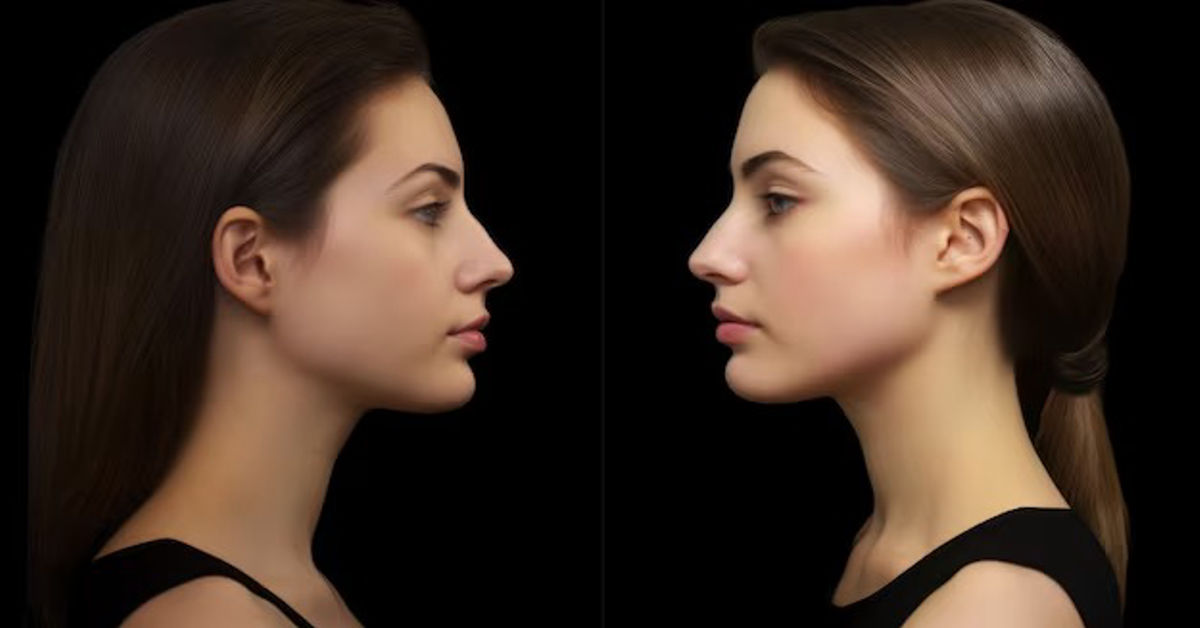Masseter Botox is an increasingly popular non-surgical procedure used for both cosmetic enhancement and medical relief. The treatment involves injecting botulinum toxin into the masseter muscles, which are located at the sides of the jaw and are primarily responsible for chewing. Overactive or enlarged masseter muscles can cause a wide, square jawline, often due to chronic teeth grinding (bruxism) or jaw clenching. By relaxing these muscles, Botox helps slim the lower face, creating a more tapered, V-shaped jawline while also alleviating tension and discomfort associated with jaw strain.
The procedure is relatively quick and minimally invasive, usually taking less than 30 minutes and requiring no downtime. After cleansing the area, a trained provider administers a series of small injections directly into the masseter muscle. Results gradually appear over the next two to four weeks, with full effects visible around the six-week mark. Patients often notice a softer, more contoured facial profile and relief from issues like headaches or jaw pain. The results typically last three to six months, and consistent treatments may lead to longer-lasting muscle reduction. Proper consultation and choosing an experienced practitioner are essential to ensure safe and effective outcomes.
What is the Masseter Muscle?
The masseter is a strong, thick muscle located at the back of the jaw. It’s responsible for chewing and clenching. For individuals with enlarged or overworked masseter muscles, the lower face can appear wider or boxier. This can be caused by genetics or excessive jaw activity, such as bruxism.
How Masseter Botox Works
Botox is a neuromodulator that temporarily relaxes muscles by blocking nerve signals. When injected into the masseter, it reduces the strength of muscle contractions. Over time, this weakens and shrinks the muscle slightly, softening the appearance of the jawline and providing both cosmetic and functional benefits.
Reasons People Choose Masseter Botox
- Facial slimming and V-line shaping
- Relief from jaw clenching and grinding (bruxism)
- Reduction of tension headaches
- Enhancing facial harmony
- Non-invasive alternative to jaw surgery
Masseter Botox Before and After: What to Expect
Before:
- A square or bulky lower face
- Frequent tension or soreness in the jaw area
- Noticeable muscle firmness at the angle of the jaw
After:
- A slimmer, more contoured jawline
- Less jaw discomfort and clenching
- Smooth, softened muscle area
Results start to show gradually within one to three weeks and can continue to improve over several months.
Ideal Candidates for Masseter Botox
The treatment is suitable for those who:
- Have an overdeveloped masseter muscle
- Seek a non-surgical jaw slimming solution
- Experience bruxism or TMJ pain
- Are in good general health
- Have realistic expectations
Consultation and Preparation
Before undergoing the procedure, a detailed consultation with a qualified practitioner is essential. This includes assessing facial anatomy, discussing concerns, and establishing goals. Patients should avoid alcohol, blood thinners, and anti-inflammatory medications 24 to 48 hours before treatment.
The Procedure: Step-by-Step Overview
- Facial assessment and marking of injection sites
- Cleansing the area to prevent infection
- Administering Botox using a fine needle into the masseter muscle
- Monitoring for any immediate side effects
The entire process typically takes 10 to 20 minutes.
Immediate Aftercare Guidelines
- Avoid lying flat for four hours
- Refrain from strenuous exercise for 24 hours
- Do not massage or touch the injection area
- Stay upright and avoid sleeping on the face
Masseter Botox Results Timeline
| Timeframe | What to Expect |
| Day 1-3 | Minor swelling or redness, if any |
| Week 1 | Early signs of muscle relaxation |
| Week 2-4 | Noticeable facial contour changes |
| Month 2-3 | Peak effect with full aesthetic results |
| Month 4-6 | Gradual decrease, may need re-treatment |
Masseter Botox for Jaw Slimming
Many people seek masseter Botox specifically for cosmetic facial reshaping. When the muscle size is reduced, it naturally leads to a narrower lower face, enhancing the cheekbones and overall facial structure. The change is subtle but can have a profound impact on appearance.
Masseter Botox for Bruxism and TMJ
Chronic teeth grinding and jaw clenching can lead to pain, enamel erosion, and headaches. Botox relaxes the muscle, relieving tension and reducing symptoms without impacting chewing ability. Many patients report improved sleep and reduced jaw pain post-treatment.
Potential Side Effects and Risks
While generally safe, some mild side effects may include:
- Temporary swelling or bruising
- Asymmetry or uneven muscle activity
- Slight discomfort at injection sites
- Headache or tightness (rare)
These typically resolve within a few days. Choosing an experienced provider minimizes risks.
Maintenance and Repeat Treatments
Botox effects last around four to six months. For sustained results, maintenance treatments are recommended two to three times a year. Over time, some patients may need fewer units as the muscle naturally decreases in size.
Comparing Masseter Botox to Other Treatments
| Treatment Type | Invasiveness | Recovery Time | Effect Duration | Primary Benefit |
| Masseter Botox | Non-invasive | None | 4-6 months | Muscle slimming |
| Jaw Reduction Surgery | Invasive | 4-6 weeks | Permanent | Bone reshaping |
| Dermal Fillers | Minimally invasive | Minimal | 6-12 months | Volume enhancement |
Real-World Before and After Case Examples
Individuals who have undergone masseter Botox report visible improvement in jawline shape and comfort. For instance, patients with broad jaws due to muscle hypertrophy noticed a sleeker appearance within two months. Consistency and proper technique play a significant role in optimal outcomes.
Cost Breakdown and Value Analysis
The cost varies depending on location, practitioner experience, and dosage required. On average:
| Region | Average Cost Per Session |
| United States | $400 – $800 |
| United Kingdom | £300 – £600 |
| Australia | AUD 500 – AUD 900 |
Masseter Botox is often considered a valuable investment due to its dual cosmetic and therapeutic benefits.
Common Myths and Misconceptions
- It makes you look unnatural: When performed correctly, the result is subtle and natural.
- Botox is permanent: The effects are temporary and wear off gradually.
- It affects chewing: Proper technique ensures no impact on chewing ability.
- Only for cosmetic use: It is widely used to treat bruxism and TMJ disorders.
Tips to Maximize Your Results
- Choose a provider with experience in facial anatomy
- Follow all aftercare instructions
- Avoid alcohol and caffeine post-treatment
- Stay hydrated to support muscle health
- Schedule consistent follow-up treatments
Final Thoughts and Next Steps
Masseter Botox is a highly effective solution for those seeking jawline contouring or relief from chronic jaw issues. With minimal downtime and noticeable results, it’s become a preferred option in both cosmetic and therapeutic settings. Consultation with a qualified professional is the first step toward achieving a balanced and refined facial profile.
For those ready to explore the benefits of masseter Botox, now is the time to take action. Schedule a consultation with an experienced practitioner to see if this treatment is right for you.
Frequently Asked Questions (FAQs)
How soon can I see results?
Most patients notice changes within two to four weeks, with full results visible around the two-month mark.
Is it painful?
The procedure involves minimal discomfort, similar to a quick pinprick.
Can men benefit from this treatment?
Yes, both men and women can achieve desired facial slimming or relief from jaw tension.
Is there any downtime?
No formal downtime is required. Most individuals return to normal activities immediately.
How many units of Botox are typically used?
It varies, but an average dose ranges from 20 to 40 units per side.







